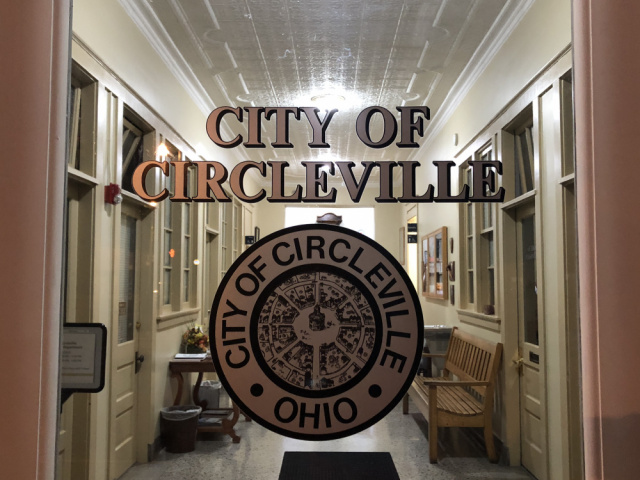
In Ohio, local governments are increasingly faced with a critical decision: should they pursue civil penalties or criminal charges to address violations ranging from traffic offenses to property damage? As cities like Columbus and Dayton grapple with resource constraints and public sentiment, the pros and cons of each approach are sparking debate among officials and residents alike. Meanwhile, major changes to code enforcement are on the horizon in Circleville, signaling a potential shift in how violations are handled. With Circleville dealing with an almost dangerously low staffing level at the Circleville Police Department, this move could help reduce police enforcement and shift some of the weight to a code enforcement officer.
The Case for Civil Penalties
Civil penalties, often used for infractions like speeding or minor vandalism, offer cities a streamlined alternative to criminal prosecution. In Columbus, officials note that civil fines—such as those for distracted driving, which can be resolved with a course instead of court time—free up police and judicial resources. “We can address minor issues without clogging the courts,” said a Columbus city spokesperson in a press release from 2020. Fines also provide a steady revenue stream, with some municipalities using the funds to improve infrastructure or community programs.
Another benefit is the reduced impact on individuals. Civil penalties typically avoid jail time and criminal records, which can be a lifeline for first-time offenders. In Dayton, a driver cited for a minor traffic violation avoided points on their license by completing a defensive driving course, preserving their employment prospects. This approach aligns with a rehabilitative mindset, focusing on correction rather than punishment.
In Circleville, a significant overhaul of code enforcement is proposed, shifting from criminal to civil penalties. Currently, all code violations, even minor ones like high grass and weeds, carry a minor misdemeanor charge or higher, involving a lengthy criminal process that many deem disproportionate, and also can cost taxpayers more money with a legal process. The proposed civil penalty system would allow Code Enforcement Officers to issue fines directly, speeding up compliance. The process would begin with a letter outlining the violation and a compliance deadline. Non-compliance would trigger a fine added to the water bill, with escalating fines for persistent issues. Severe violations could still lead to criminal charges. The City Council will hold a public hearing on August 5 at 6:00 p.m. to gather input, with the full ordinance draft not yet available online for the Tuesday meeting.
However, critics argue that civil penalties can feel like a “slap on the wrist.” For repeat offenders, the lack of serious consequences may fail to deter behavior. Additionally, the revenue motive raises concerns about fairness, with some accusing cities of over-relying on fines to balance budgets, potentially targeting low-income areas disproportionately.
The Case for Criminal Charges
Criminal charges, applied to offenses like assault or felony vandalism, carry heavier penalties, including jail time and lasting records. This approach can serve as a stronger deterrent, particularly for serious or habitual violations. In Cleveland, a recent case of criminal mischief involving significant property damage led to a fifth-degree felony charge, resulting in a 12-month prison sentence. This sends a clear message that the community won’t tolerate escalation.
The punitive nature of criminal charges also allows for public safety measures, such as probation or mandatory counseling, which can address underlying issues like substance abuse. In Toledo, a driver convicted of vehicular manslaughter faced both jail time and a license suspension, protecting the community from further risk.
Yet, criminal charges come with drawbacks. The process is resource-intensive, requiring extensive police work, court proceedings, and legal representation—often at taxpayer expense. Public defenders in Ohio are stretched thin, and lengthy trials can delay justice. Moreover, convictions can have lifelong consequences, hindering employment and housing opportunities, even for minor misdemeanors like a first-degree assault with a 180-day maximum sentence. Advocates for reform argue this punishes individuals beyond the crime’s severity.
A Local Perspective
Ohio’s diverse communities highlight the trade-offs. In rural Harrison Township, where a recent crash resulted in minor injuries and a citation for failure to yield, civil penalties sufficed, avoiding a criminal record for the young driver involved. Conversely, urban areas like Cincinnati see criminal charges for violent crimes, reflecting higher stakes and resource availability, also possibly perpetuating a revolving door of continued violations.
The proposed Circleville change could set a precedent, offering a faster resolution for code issues while retaining criminal options for serious cases. City councils elsewhere are experimenting with hybrid models, converting certain misdemeanors to civil infractions to reduce court backlogs while retaining deterrence through fines or restitution. Others push for mandatory minimums in criminal cases to ensure consistency, though this limits judicial discretion.
The Road Ahead
The choice between civil penalties and criminal charges in Ohio hinges on balancing justice, resources, and community impact. Civil options offer efficiency and leniency but risk undermining deterrence, while criminal charges provide accountability at the cost of strain on the system and individuals. In Circleville, the shift to civil penalties for code enforcement could streamline processes, but public input will shape its success. As local leaders navigate this tension, data-driven policies and community engagement will be key.
Residents are encouraged to attend Circleville’s public hearing on August 5 at 6:00 p.m. at 104 E Franklin Street, or submit questions/comments online via the city’s website (click HERE or scan the QR code below).

For more information on these policies in other cities, contact local officials.











